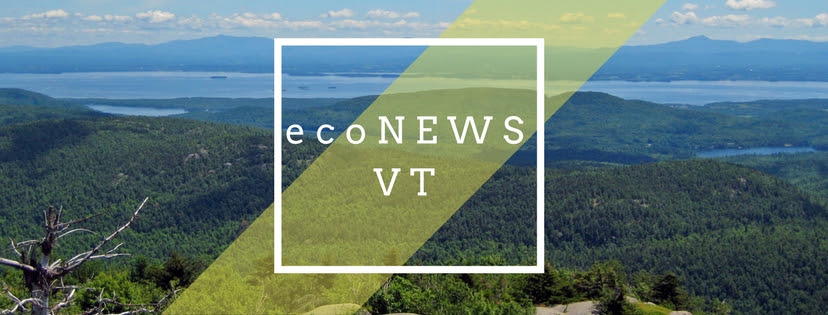
| Highlighting the latest findings in ecological research and monitoring from across Vermont |
| Fall conjures up images of foliage, crisp mornings, and even the beginnings of snow. Along with these seasonal joys comes our fall newsletter! In this edition, we feature research concerning how environmental conditions impact invasive fish in Lake Champlain, the plight of immigrant dairy workers in Vermont, and how multiple factors determine soil carbon in forests. We also highlight how researchers are mapping the depth of Lake Champlain. |
 Invasive Alewife Impacts on Native Rainbow Smelt in Lake Champlain Depend on Environmental Condition In Lake Champlain, alewife compete with rainbow smelt in smaller basins with summer habitat limited by warm temperatures and low oxygen. |
 Immigrant Workers Vital to Vermont Dairy Industry, Need More Social and Medical Support Immigrant dairy workers in Vermont, especially those who are undocumented, often lack fair labor conditions and adequate medical resources. |
 Earthworms and Elevation Affect Soil Carbon in Vermont Forests Study of soil carbon in forest plots reveals complex interaction among land-use history, earthworms, soil chemistry, and tree species. |
| Featured Online Tools, Maps, and Mobile Apps |
 Mapping the Depth of Lake Champlain Middlebury researchers measure depths in Lake Champlain to produce a map for other researchers, lake managers, first responders, and lake enthusiasts. |
| Research Webinar – November 17, 2021 |
 Upwelling in Lake Champlain’s South Main Lake: Identifying Events and Assessing Impacts By Eric Leibensperger, Assistant Professor at Ithaca College Date: Wednesday, November 17th, 2021 Time: Noon – 1 PM EST For more information please visit: https://www.uvm.edu/seagrant/programs/events/research-seminar-series-upwelling-lake-champlains-south-main-lake-identifying-events |
| Research Webinar – December 15, 2021 |
 Cyanobacteria Bloom Impacts on Fish: Ecological and Human Health Considerations By Natalie Flores, PhD candidate, University of Vermont (UVM) Rubenstein School of Environment and Natural Resources Date: Wednesday, December 15th, 2021 Time: Noon – 1 PM EST For more information please visit: https://www.uvm.edu/seagrant/programs/events/research-seminar-series-cyanobacteria-bloom-impacts-fish-ecological-and-human-health |
| These seminars/webinars are part of a series, sponsored by Lake Champlain Sea Grant, that occurs monthly. Please see the Lake Champlain Sea Grant website for more information. |
| Fellowship Opportunities |
| 2022 NATIONAL MARINE FISHERIES SEA GRANT FELLOWSHIP The deadline for applications is January 27, 2022. Two- to three-year, paid fellowships to support new or continuing PhD students who are interested in careers related to population and ecosystem dynamics of living marine resources and/or marine ecosystem dynamics. To learn more please visit: https://www.uvm.edu/seagrant/national-marine-fisheries-service-sea-grant-joint-fellowships |
| 2023 SEA GRANT JOHN A. KNAUSS MARINE POLICY FELLOWSHIP The deadline for applications is January 21, 2022. One-year, paid fellowships in Washington, DC for graduate students interested in ocean, coastal, and Great Lakes resources and national policy decisions. To learn more please visit: https://www.uvm.edu/seagrant/knauss-marine-policy-fellow |

